Hardinfo2 (in short for “hardware information“) is a system profiler and benchmark graphical tool for Linux systems, that is able to gather information from both hardware and some software and organize it in an easy-to-use GUI tool.
Hardinfo2 can show information about these components: CPU, GPU, Motherboard, RAM, Storage, Hard Disk, Printers, Benchmarks, Sound, Network, and USB as well as some system information like the distribution name, version, and Linux Kernel info.
Besides being able to print hardware information, Hardinfo2 can also create an advanced report from the command line or by clicking the “Generate Report” button in the GUI and save it in either HTML or plain text formats.
The difference between Hardinfo2 and the other Linux hardware information tools is that the information is well arranged and easier to understand than other such tools.
How to Install Hardinfo2 in Linux
HardInfo is a most popular graphical application and it is tested on Ubuntu/Mint, Debian, OpenSUSE, Fedora/CentOS/RHEL, Arch Linux, and Manjaro Linux.
To install hardinfo, go to the hardinfo GitHub releases page and download the corresponding binary (.deb or .rpm) for your Linux distribution and install it using a package manager.
Alternatively, you can build and install hardinfo2 from sources in Debian-based distributions, run:
sudo apt install git cmake build-essential gettext sudo apt install libjson-glib-dev zlib1g-dev libsoup2.4-dev libgtk-3-dev libglib2.0-dev git clone https://github.com/hardinfo2/hardinfo2 cd hardinfo2 mkdir build cd build cmake .. make package -j sudo apt install ./hardinfo_* sudo apt install lm-sensors sysbench lsscsi mesa-utils dmidecode udisks2 xdg-utils iperf3 hardinfo2
To install hardinfo2 in RHEL-based distributions, run:
sudo yum install epel-release sudo yum install git cmake gcc gcc-c++ gettext rpmdevtools sudo yum install json-glib-devel zlib-devel libsoup-devel gtk3-devel git clone https://github.com/hardinfo2/hardinfo2 cd hardinfo2 mkdir build cd build cmake .. make package -j sudo yum install ./hardinfo-* sudo yum install lm_sensors sysbench lsscsi glx-utils dmidecode udisks2 xdg-utils iperf3 hardinfo2
How to Use HardInfo in Linux
Once installed, open up hardinfo2 on your computer. It’s a graphical application, and it should be categorized under System by the name System Profiler and Benchmark in your distribution’s launcher.
Once it’s open, you will see various tabs in the left sidebar organized by category, and the information contained in those tabs listed on the right side.
For example, you can view information about your system.
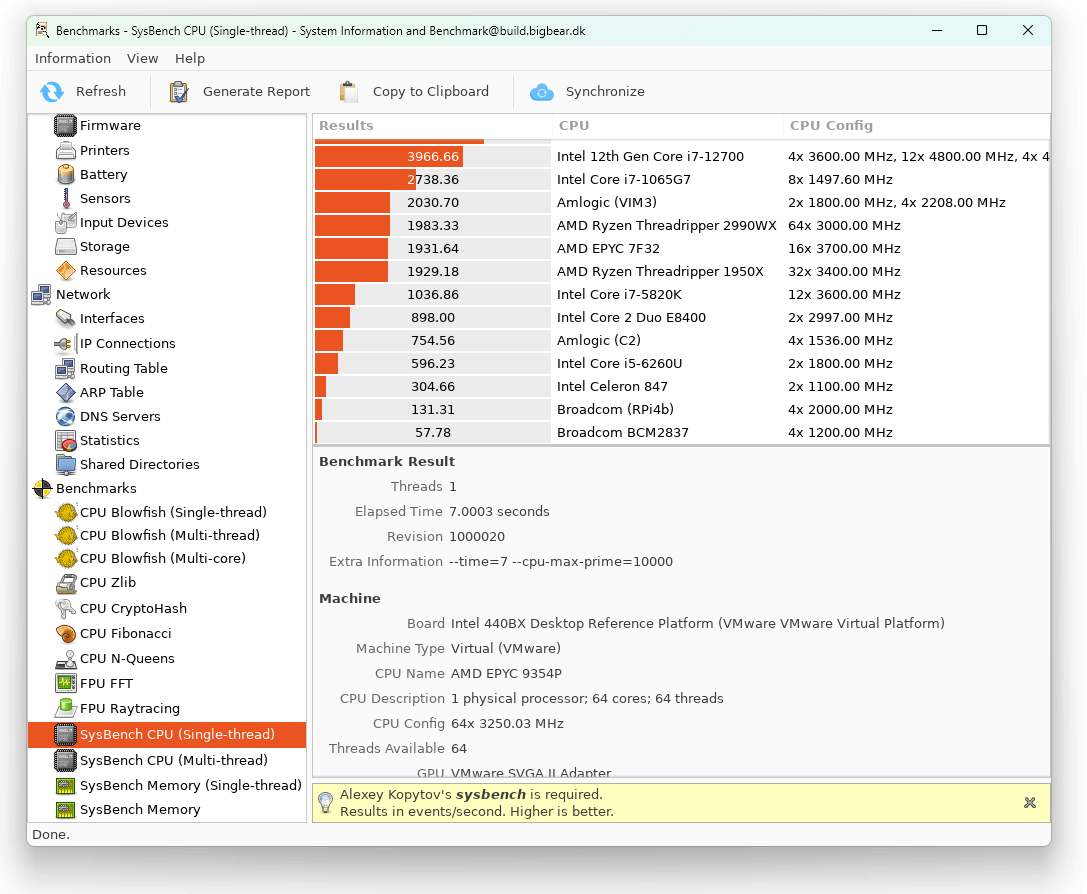
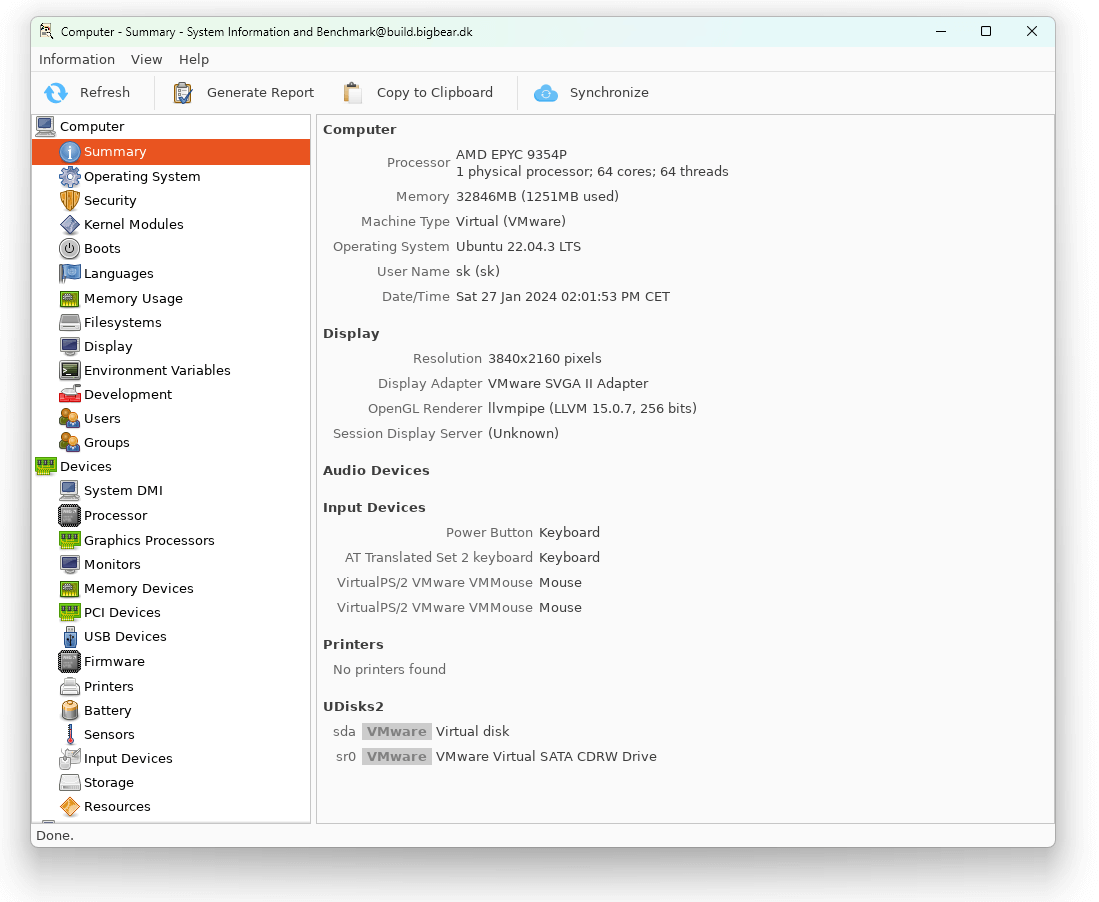
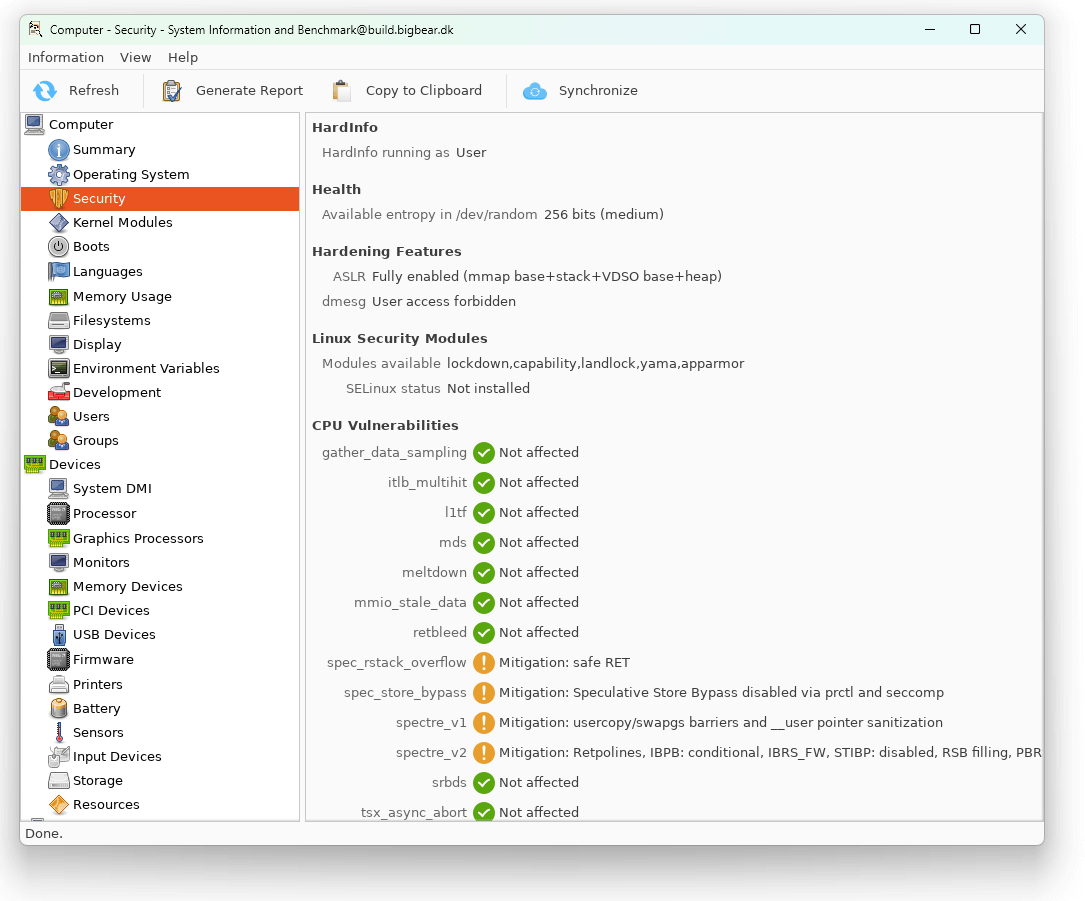
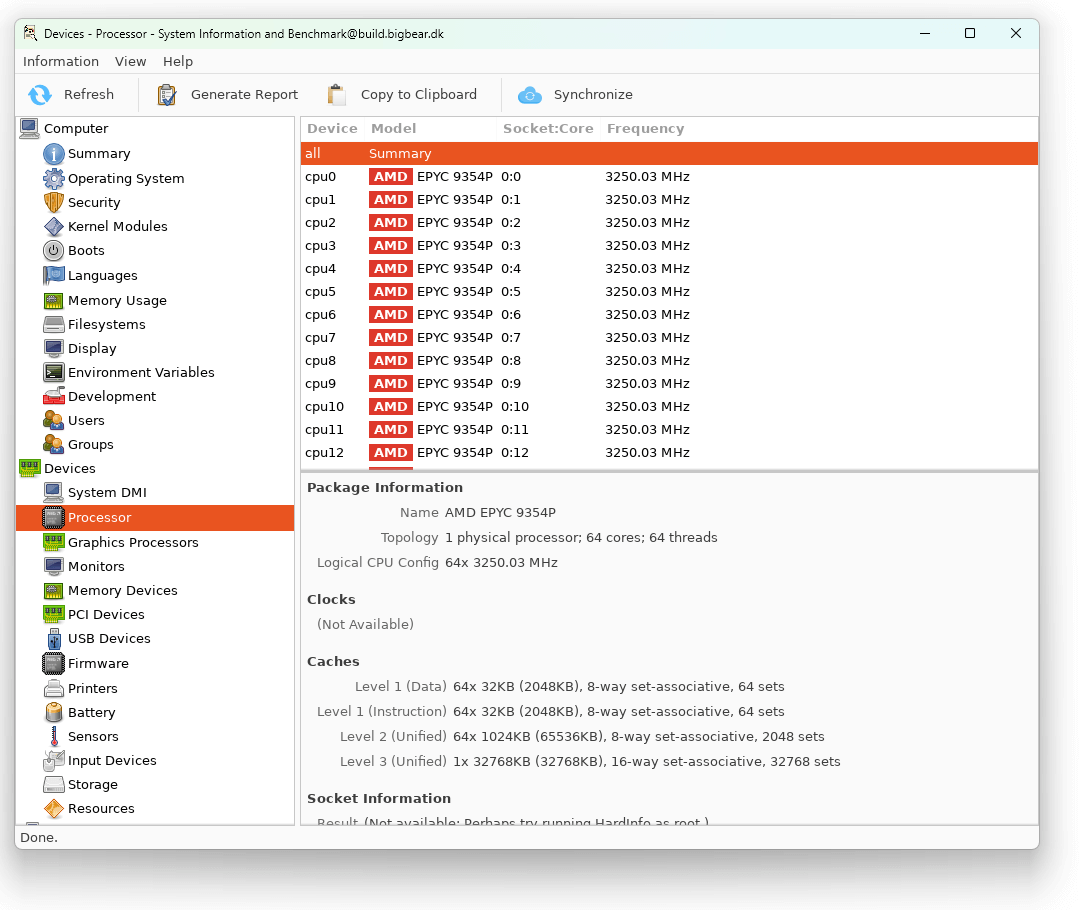
All this information can be viewed in the command line, especially from the /proc directory.
In Linux, there are other tools for getting system hardware information, but in this article, we have talked about the ‘hardinfo2‘ tool. If you know of any other similar tools, please share them in the comments.

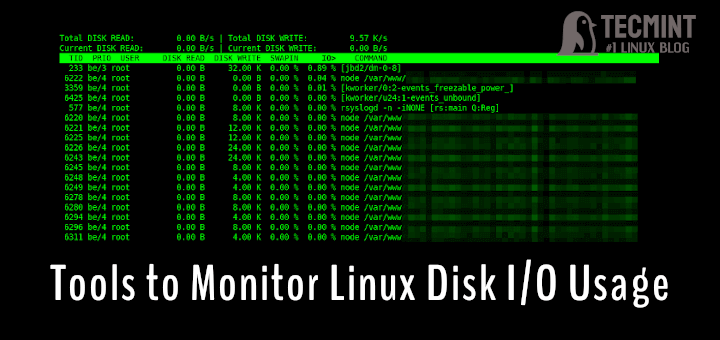
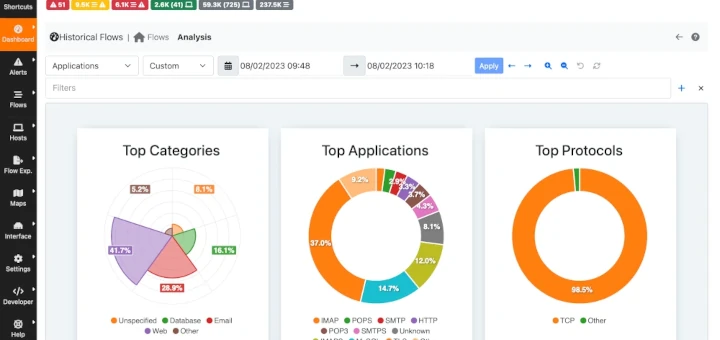
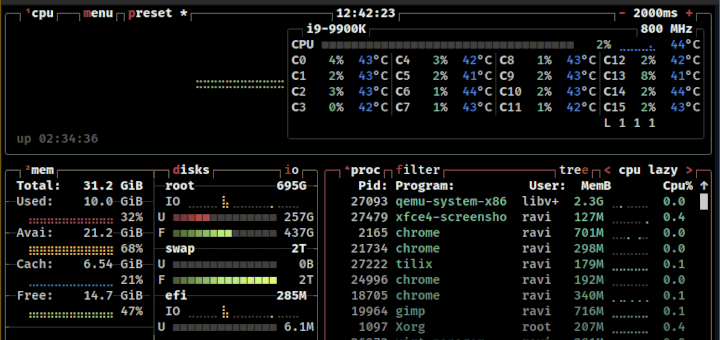
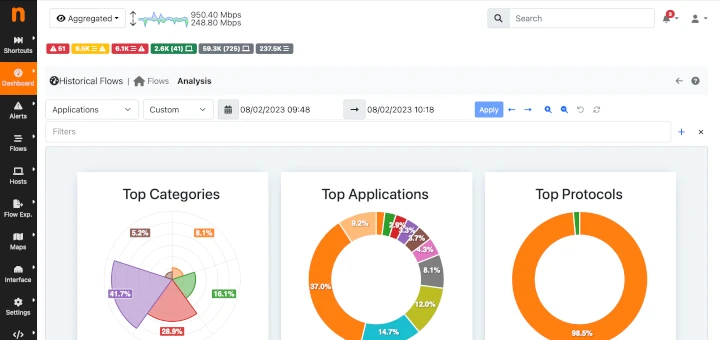
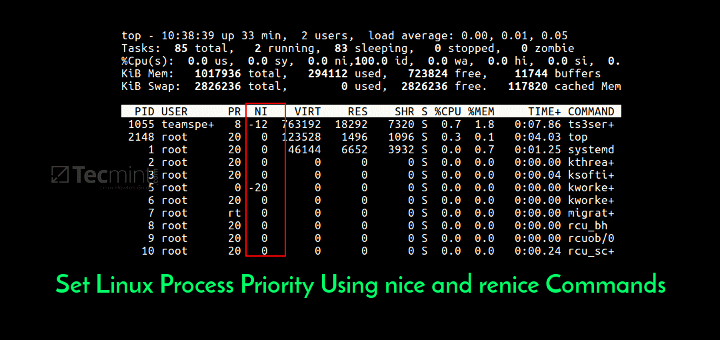
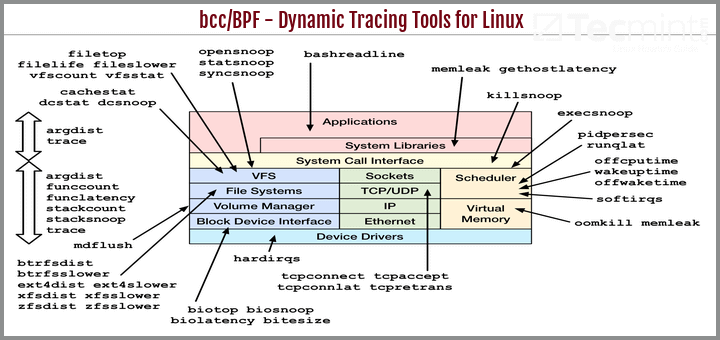
hardinfo2 – News
The System Information and Benchmark program hardinfo2 is now in ~50% of all Linux distributions and work is being done for the remaining distros.
Status can be seen on the new hardinfo2 project page, which also allows for getting knowledge about Linux Benchmarking for different CPUs vs Benchmark types.
https://www.hardinfo2.org – Please give the project some love
– install and learn more about your Linux system and please do a full benchmark run by pressing the Synchronize button, Thanks.
/hwspeedy
We have rebooted the project as a community edition hardinfo2 – see/join the github project:
https://github.com/hardinfo2/hardinfo2
There are also binary packages for the most used distros – see:
https://hardinfo2.org/github/?latest_prerelease
Homepage with pictures and more:
https://hardinfo2.org
Hope to be back in all distros – there is no other program like hardinfo2.
What a cool tool. Thanks for the instructions. For my Fedora installation, I also had to install:
cmake
g++
gtk2-devel
json-glib-devel
What a nifty utility. Found out a few interesting things about my system!
Many thanks
Is this available only to Ubuntu or other distros as well. If so, it would have been nice if you mentioned that fact. I can’t find it in Fedora.
john
Any similar tool where we can give ipaddress of the remote machine and get similar details..?
Use built-in command ‘dmidecode’ to get hardware information.
Great tools!